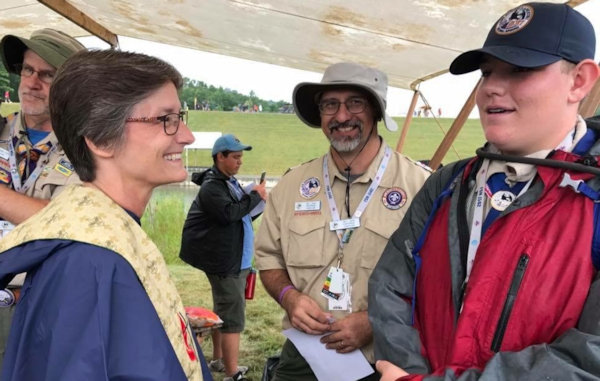What does a chaplain do at a Boy Scout Jamboree. Plenty! Rev. John Partridge explains.
REV. JOHN PARTRIDGE
East Ohio News
I just spent two weeks living in a tent, sleeping on a cot, walking farther than I have in decades, taking really cold showers, and I probably had one of the best times of my life doing it. For two weeks in July, I served as a chaplain, along with about 76 other pastors (including just about every denomination and faith you can name), at the National Boy Scout Jamboree which is held every four years at the Summit Bechtel Reserve in Glen Jean, West Virginia.
While many people have heard about the Jamboree, many have questions about what a chaplain does and why the Boy Scouts would need so many of them for a single event. Honestly, I asked myself the same questions before I went, and while some of the answers are simple, others take a little more explaining.
The easiest question to answer is why the Jamboree would need almost eighty chaplains. Simply put, scouting has always regarded the spiritual life of its members to be an important value regardless of faith and with something over 28,000 scouts and 6,000 staff converging on the Summit for two weeks, this small city needed trained pastors to provide spiritual care. As members of a sub-camp staff, my tent mate Michael Lavoi (a Mormon chaplain) and I were responsible for a “congregation” of more than 20 sub-camp staff as well as 2,000 scouts and their adult leaders.

As staff members, we helped out in registration during the busy arrival day, helping to carry mail, or wherever an extra hand was needed. And, although the first few days were easy from a pastoral perspective, after everyone started getting tired we were called upon to help scouts, and adult scout leaders, mediate personal conflicts. There were young people who were homesick, some that were in fights, leaders who knew about a death in the family of one of their scouts but whose family asked that they not be told, there were threats of suicide, thefts (yes, it happens even in the Boy Scouts), and everything else that happens when people live together.
But that isn’t all we did.
Last Updated on August 15, 2017

